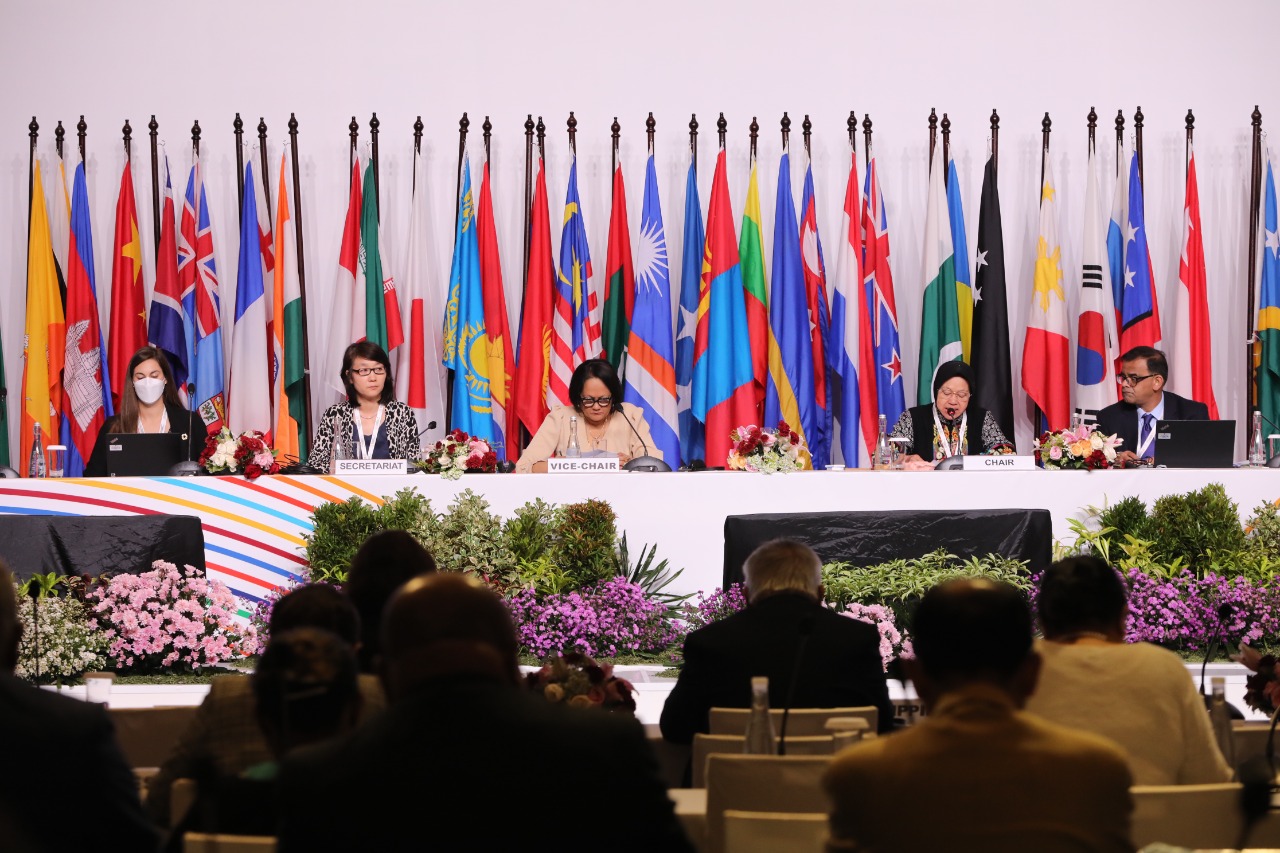High Level Intergovernmental Meeting on Persons with Disabilities in Asia-Pacific Issues Jakarta Declaration

JAKARTA (October 21,
2022) - The High-Level Intergovernmental Meeting on The Final Review of The
Asian and Pacific Decade of Persons with Disabilities (HLIGM APDPD) was closed by
publishing the Jakarta Declaration which marked the start of the fourth decade
of persons with disabilities in the Asia Pacific region.
The Jakarta Declaration
is expected to be able to reaffirm the commitment of the governments of Asia
Pacific countries to realizing the Incheon Strategy which was initiated ten
years ago.
"Today is the last
day and has been closed for a high-level meeting between governments in the
Asia Pacific and we made the Jakarta Declaration for the follow-up to
2023-2032, which will be followed up by members, accelerated and
implemented," said the Minister of Social Affairs in her statement after
closing the conference.
The Jakarta Declaration
contains six resolutions as a commitment of governments in Asia Pacific
countries to disability-inclusive development. One of the priority issues is
the alignment of the Convention on the Rights of Persons with Disabilities
(CRPD) to national-level legislation.
Indonesia itself has
ratified the CRPD through Law Number 19 of 2011 on Ratification of the
Convention on the Rights of Persons with Disabilities and in 2016, Law Number 8
of 2016 on Persons with Disabilities was made as a replacement for Law Number 4
of 1997 on persons with disabilities.
According to Risma,
harmonization of legislation is the toughest challenge for the Indonesian
government because it has three levels of government, namely the central
government, the provincial government, and the regency/city government.
"That's my hardest
homework because we have three levels of government. It's not easy for sure,
but we have to keep trying," she said when interviewed by reporters in
Jakarta, Friday (21/10).
Meanwhile, Under-Secretary-General of the United Nations and Executive Secretary of the Economic and Social Commission for Asia and the Pacific (ESCAP), Armida Salsiah Alisjahbana, said that although the implementation of the CRPD had progressed, persons with disabilities in the Asia Pacific region face barriers that limit their participation in education, work, decision-making, and many other aspects of daily life.
To that end, the former Minister of National Development Planning under President SBY invited UNESCAP members to strengthen new partnerships with organizations of persons with disabilities, the private sector, United Nations entities, and others to create a holistic community approach.
"With this new promise (the Jakarta Declaration), let's invest the necessary resources to ensure we achieve the 10 goals of the Incheon Strategy over the new decade," she said in her closing statement.
In adopting the Jakarta Declaration, Armida hopes that persons with disabilities can participate actively and significantly in all policies and programs related to disability, in line with the spirit of nothing without us.
Meanwhile,
the HLIGM FRPD was implemented in collaboration with UNESCAP and MoSA. This
activity was carried out on a hybrid basis since October 19 and ends on October
21, 2022. Also attending this activity were delegates from 53 member countries,
9 association countries, observer countries, UN agencies, and civil society
organizations.
 English
English
 Bahasa
Bahasa
